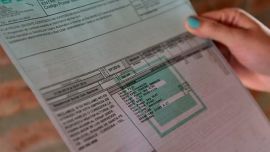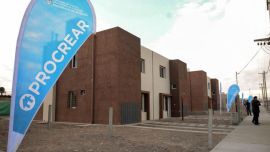The tempest behind him, President Mauricio Macri appears convinced that he must double-down in order to set Argentina on a path of continued progress. Given the current state of affairs, it was troubling to listen to his top economic policymakers failing to engage in self-criticism, as if the only mistakes had been caused by exogenous factors. And while force majeure had a hand in the recent currency crisis, it was clearly exacerbated by risky and ineffective policies and a certain arrogance that led to both a substantial loss of political capital and of actual foreign reserves without achieving the desired outcome. Now, more than ever, Macri et al. need to truly embrace the new cultural paradigms they speak so highly of, acknowledging errors—especially in the past six months, both on the economic and political fronts—and pushing forward with a plan that tackles the fiscal deficit and the lack of productivity of the Argentine economy. This requires the inclusion of actors across the political spectrum, who now have the incentive to derail Macri’s project as they eye his place in the 2019 presidential election. All of this means that, from now on, Argentina will have to rid itself of the illusion of being a prosperous nation in the short and even medium-term. Calling on the IMF for help is indeed akin to relegation to second division, as has been said lately.
A few years ago, when Cambiemos won a surprise victory and Macri became the first President not to belong to either of the major political parties since the end of the last military dictatorship (1976-1983), economists raved about Argentina’s prospects. Optimists both at home and abroad projected GDP growth of at least 3% to 3.5% per annum by Macri’s second year along with falling inflation and a downpour of investments. That first year came with an expected contraction of 1.8%, as currency controls were lifted and the peso suffered a hard but much needed devaluation. 2017 was a tough year for most Argentines, but GDP grew at a 2.9% clip and inflation finally fell from around 40%—depending what index you look at— to 24.8%.
During those first two years in power, Macri found an unexpected ally in Sergio Massa, leader of the Peronist Frente Renovador (Renewal Front), pushing more than 100 bills through both chambers of Congress. An efficiency rate of 73.9%, according to La Nación’s Laura Serra. With a marked minority in both chambers of Congress, Macri and his legislative strategy were hailed as genius.
The master statesman that had seduced the global elite, and Wall Street, saw his party crush Cristina Fernández de Kirchner’s hopes for a comeback in midterm elections, only to call on opposition governors in what seemed like an act of grandeur, magnanimous at his strongest moment. And just as quickly, empathy and dialogue evaporated, and a more authoritative Macri began to concentrate decision-making power in fewer people. The political members of his so-called small group (mesa chica) like Ernesto Sanz— the UCR (Radical Civil Union) strategist that brokered a national coalition that gave Macri the presidency—and Emilio Monzó—former Peronist in charge of Cambiemos’ bloc in the Chamber of Deputies—were thrust outside the circle of trust. Marcos Peña controlled that circle with an iron fist along with his deputies, Mario Quintana and Gustavo Lopetegui.
The house of cards began to fall apart toward the end of 2017, damaging Cambiemos’ relationships with its circumstantial allies, and severely wounding the Central Bank’s credibility. When the global macroeconomic situation turned against Argentina, Macri and his myriad economic ministers had no answers: inflation remained stuck around 25% and growth prospects dropped to a mere 0.5% to 1.5%. The peso continues to slide against the U.S. dollar while foreign indebtedness grew dramatically. And, of course, meagre economic growth hasn’t spread beyond a few sectors that are skewed in favor of the wealthy, such as the financial and the agro-exporting sectors. Even worse, government expenditure has increased and our trade deficit hit record highs and trends upward.
Enter the IMF. Having lost access to international debt markets, Macri was forced to call on Fund Director Christine Lagarde. She responded with a US$50 billion Stand-By Arrangement that will most definitely force the government to accelerate austerity. As mentioned last week, slashing spending in an economy that is almost entirely reliant on consumption (which makes up 86.9% of GDP) has strong recessionary tendencies. Cambiemos, though managed to overcome market turbulence.
Macri has lost the capacity to work the legislative branch to carry on with much-needed reforms, particularly the labour reform that will allow the country to become less unproductive. “You cannot do this alone, reflect on your relationship with the political opposition,” said Miguel Ángel Pichetto, Senator and head of the Peronist bloc. Pichetto was closing the debate that saw them pass a bill blocking public service cost hikes that would receive an immediate veto from the Executive. Pichetto, it is known, is in close communication with Massa.
The IMF has now forced the government to change its economic path. While it gave Federico Sturzenegger, President of the Central Bank, a stronger hand as it asked the Executive for greater independence, the Found also slapped his wrist. Sturzenegger had created a monster of short-term bonds called Lebac, which were used to sterilize or absorb pesos. Some US$73 billion of them are in circulation, more than the US$50 billion in foreign reserves. The IMF asked Sturzenegger to stop financing the Treasury and he pledged to buy back all Lebacs over the next three years. He also recalibrated his inflation targets, now aiming for 17% by the end of 2019, at the IMF’s behest.
The government bought time with the IMF but sold its soul to the devil. Now it must live up to the difficult task it imposed on itself: shift the Argentine paradigm, cutting the deficit, generating trust in institutions and creating a holistic project that will narrow the political debate to the point where Congress is operative. For that, he’ll need much more than just US$50 billion.



















Comments